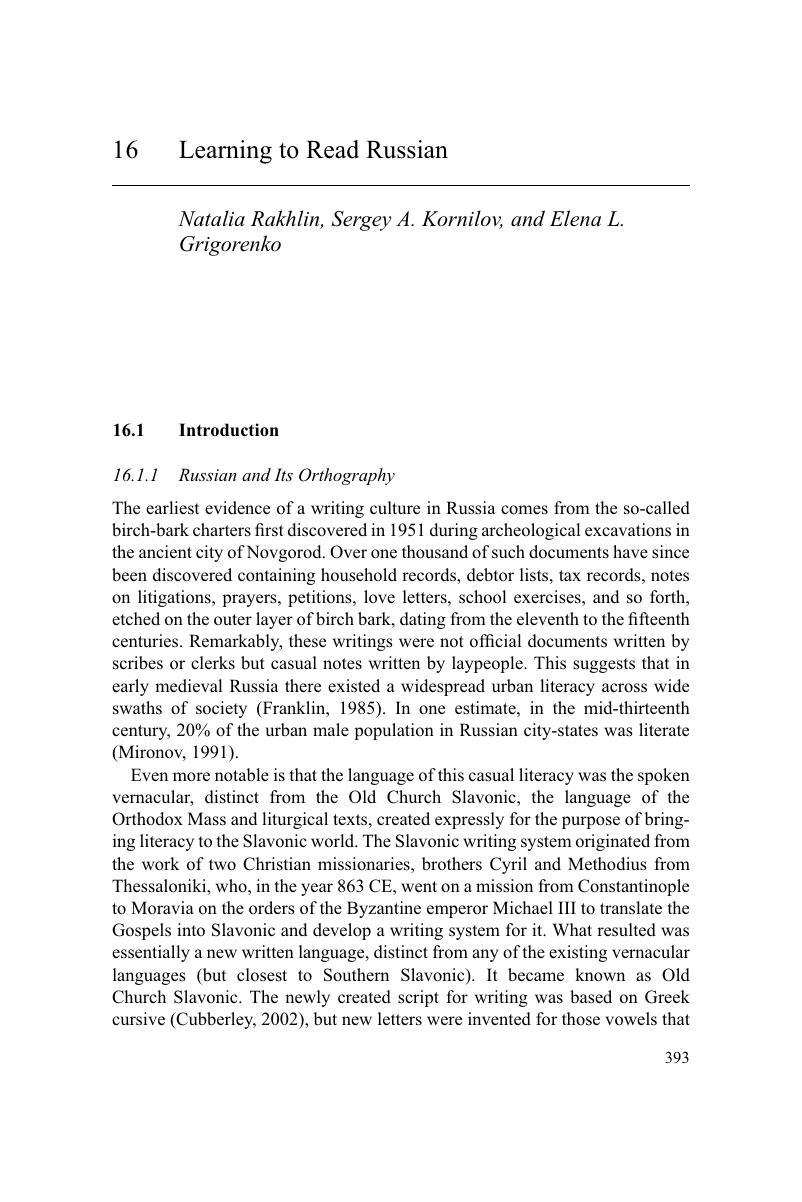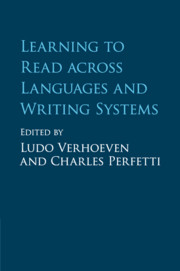Book contents
- Learning to Read across Languages and Writing Systems
- Learning to Read across Languages and Writing Systems
- Copyright page
- Contents
- Figures
- Tables
- Contributors
- Classification of Written Languages
- 1 Introduction
- 2 Learning to Read Chinese
- 3 Learning to Read Japanese
- 4 Learning to Read Korean
- 5 Learning to Read Kannada and Other Languages of South Asia
- 6 Learning to Read Arabic
- 7 Learning to Read Hebrew
- 8 Learning to Read Greek
- 9 Learning to Read Italian
- 10 Learning to Read French
- 11 Learning to Read Spanish
- 12 Learning to Read German
- 13 Learning to Read Dutch
- 14 Learning to Read English
- 15 Learning to Read Czech and Slovak
- 16 Learning to Read Russian
- 17 Learning to Read Finnish
- 18 Learning to Read Turkish
- 19 Epilogue: Universals and Particulars in Learning to Read across Seventeen Orthographies
- Appendix
- Index
- References
16 - Learning to Read Russian
Published online by Cambridge University Press: 02 October 2017
- Learning to Read across Languages and Writing Systems
- Learning to Read across Languages and Writing Systems
- Copyright page
- Contents
- Figures
- Tables
- Contributors
- Classification of Written Languages
- 1 Introduction
- 2 Learning to Read Chinese
- 3 Learning to Read Japanese
- 4 Learning to Read Korean
- 5 Learning to Read Kannada and Other Languages of South Asia
- 6 Learning to Read Arabic
- 7 Learning to Read Hebrew
- 8 Learning to Read Greek
- 9 Learning to Read Italian
- 10 Learning to Read French
- 11 Learning to Read Spanish
- 12 Learning to Read German
- 13 Learning to Read Dutch
- 14 Learning to Read English
- 15 Learning to Read Czech and Slovak
- 16 Learning to Read Russian
- 17 Learning to Read Finnish
- 18 Learning to Read Turkish
- 19 Epilogue: Universals and Particulars in Learning to Read across Seventeen Orthographies
- Appendix
- Index
- References
Summary

- Type
- Chapter
- Information
- Learning to Read across Languages and Writing Systems , pp. 371 - 392Publisher: Cambridge University PressPrint publication year: 2017
References
- 5
- Cited by



